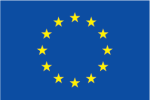Two vast fields of ethics are very relevant in the context of medical education: bioethics and research integrity.Yet, curiously, the instruction in these two areas shows a significant imbalance in medical schools across Europe. The teaching of bioethics has become over the past few decades an inescapable component of medical education in most European countries. Medical students are formally instructed about the ethical principles that should guide healthcare practice; they learn about the features of the physician-patient relationship and the importance of guaranteeing patients’ free and informed consent; they discuss various ethical dilemmas about the beginning and the end of life, research involving human subjects, genetic testing, resource allocation in health care, etc. In contrast, little attention is still paid to the instruction of medical students in research integrity, that is, in the ethical rules that govern the procedures for producing scientifically valid research results.
The fact is that both bioethics and research integrity are crucial constituents in the education of future medical doctors. However, they pursue different goals: while bioethics has primarily to do with preventing harm to patients and research subjects, scientific integrity has to do with truthfulness in science, that is, with the imperative that the research results that are disseminated correspond to the real data and real authorship.


Leave a Reply